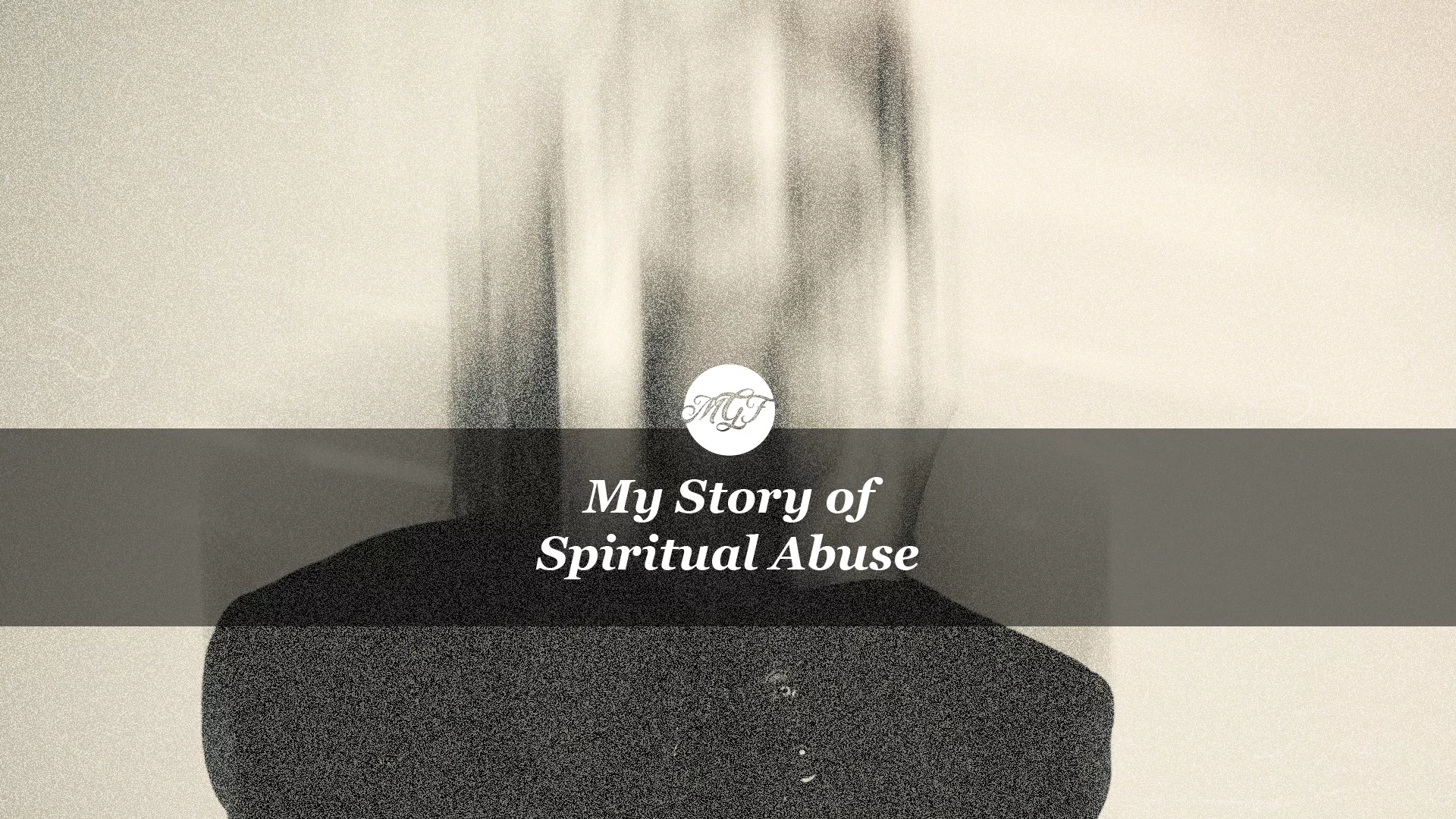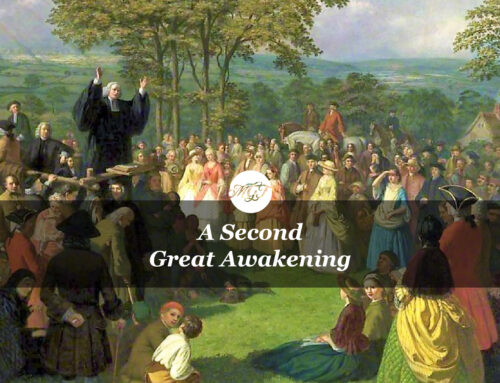It seems like the Church today is prone to spiritual abuse. Whether Catholic or Protestant, mega or mini-sized, the Church is rampant with bad leaders acting selfishly, manipulating and lying for purposes that defy logic. Why? What is the pattern that facilitates this behavior? And how can we get better? Be better? Do better?
This is the conversation I think we must have. Now.
I’ve been a part of all kinds of churches, of all kinds of denominations and theological backgrounds, of all sizes. I’ve attended the little ol’ country church on the county line and the mega-church with a congregation larger than most towns. I’ve been a part of the Baptist Church, the Bible Church, the Pentecostal Church, the Word of Faith movement, the Disciples of Christ Church, the Church of Christ, and a few non-denominational churches too. I jokingly call myself a spiritual mutt, but I’m honestly grateful for such a wide and varying experience within the many corners of today’s Church because I think it has given me a unique perspective on a lot of the patterns I see across the board.
And I’m ready to talk about them.
While it often seems like the bigger the church, the more problems there can be (mo’ money, mo’ problems as the saying goes), I can attest firsthand that money and size are not the only factors and that spiritual abuse can rear her ugly head in any size congregation. To that point, I once attended a small church of no more than 150 congregants. When a new pastor was hired, the century-old church was fired up and excited to bring someone young and full of fresh ideas to the table. Within the course of a few months, the pastor and his wife eliminated business meetings under the premise that “no one wants to sit through those anyway.” We all naïvely agreed. Thanks to that elimination, within weeks, he began to strip the church of all of its bylaws, leadership, and even teachers. By the time he was done, he had made sure that only he was teaching all of the men in the church (from birth to death) and only his wife was teaching all the women. It took all of us a minute to realize that what initially seemed like the moves of a guy just “eliminating red tape” quickly became the markers of a megalomaniac. And in fact when a church-wide meeting was called by the pastor to inform us of his new rules (including a signed covenant with him, not God, to promise to tithe at least ten percent), several stood up to question him (including myself). I was told that day, in front of the entire congregation, that as an unmarried woman in the church, I had no voice and no right to speak. I walked out that day and did not return.
That was my first real taste of spiritual abuse. I was twenty-one years old. It’s a wonder I did not walk away from the Church entirely that day. By the grace of God, I only walked away from that congregation. I thought it was just an anomaly. Unfortunately, it was not.
Just a Glimpse of What I’ve Seen in Twenty Years of Ministry
I’ve encountered pastors who continually claim the church cannot afford to fund ministries while simultaneously putting his children in expensive private colleges and taking his family on cruises every four months. I’ve encountered pastors who have used the exact words, “I cannot be your pastor” to people who question him on the most minute problems. I have encountered pastors who say things like, “You’re just not corporate enough yet” as if that’s a marker of how church should be run. I’ve heard pastors say, “You’re too difficult to love.” I’ve encountered pastors who cleverly turn everything you say against you so that you walk out of their offices feeling like you’re the one at fault for struggling with leadership decisions and trajectories. I’ve encountered pastors who surround themselves with an all-female staff of women who worship the ground he walks on while simultaneously attempting to turn those women against their husbands who question him. I’ve encountered pastors who will lie to your face, knowing you know they’re lying and also knowing you won’t do anything about it. In several different ministries, I’ve encountered pastors who use their positions to manipulate women into sleeping with them. I’ve encountered pastors who justify their Maserati and Learjet as “ministry tools.” I’ve encountered pastors who tell their congregants that every penny donated to the ministry goes to missions, while seeing the books firsthand to know it was patently false. I’ve encountered pastors who eliminated the only ministry in the church dedicated to helping their community because it was too difficult, time-consuming, and expensive. I’ve encountered pastors who justify their extra-marital affairs because God “told them their wife isn’t supportive enough.” I’ve encountered pastors, ministry leaders, and even laypeople who use the phrase “God told me” as a spiritual trump card for nasty behavior. I’ve encountered a pastor who told me I could not break up with my boyfriend who was abusing me because that would not embody Christ-like forgiveness. (I was twenty years old when that happened. Twenty.) I’ve encountered pastors who tell their staff and congregation that the person stepping down from leadership was “never called to ministry in the first place.”
That is not an exhaustive list, but every single thing I mentioned above is something I have witnessed firsthand. Not a single one of those stories is secondhand. Honestly, as I’m writing this, it’s surprising me how quickly I just came up with that list and how many more stories I could add.
I used to chalk all of that up to arrogant, shameless men and women who had no business in ministry in the first place. But it has happened so often, across so many denominations, in churches of all sizes, cultures, and financial situations that I’m beginning to wonder if it’s not a coincidence.
More than ten years ago, I wrote a series of articles about spiritual abuse in the church that I never released to the public. The ironic reason for keeping them to myself was because I was manipulated into thinking that if I released them, it would destroy the people I love the most. So I held on to them, tucking them away and revisiting them from time to time over the years. I reread them today for the first time in a long time and struck me how much of what I experienced then is still the same.
Same song, different verse.
I keep asking myself: am I the problem? Why do I keep seeing this wherever I go? Is it that too many of us are content to remain blissfully unaware and I’m the only one who sees it?
When I released this article two weeks ago, I was still harboring that mentality. But when hundreds (and I mean literal hundreds) of you reached out to me to say you experienced the same things I did (and most of you reached out in ways that your pastor cannot see) I realized the truth: I’m not the only one; it’s not just me; and there’s a glaring reason no one is talking about it.
We’re afraid to.
For the same reasons I was bullied into silence more than a decade ago, we’re told both implicitly and blatantly that to speak out is to hurt people who are just as human as you. We’re told that if we say anything, we’re not owning up to our own mistakes. We’re made to believe that if we sinned at all, if we ever mishandled an experience, if we ever showed even the slightest lack of grace, we have no right to speak. We’re told that if we talk about this, we’re undermining the Church and her crucial importance in the world today. We’re told that if we call leadership out, we’re failing to recognize their own humanity. We’re told that if we have a problem, we’re the problem. We’re told no one will believe us. We’re told it’s not a systemic problem, it’s isolated to a few bad apples here and there so we should forgive and forget.
I’m done.
With every bit of that. I’m done making excuses. I’m done apologizing. I’m done tip-toeing and white-washing and pretending. I’m done.
From the conversations I’ve had over the last two weeks, apparently, many of you are done, too.
If I’m being honest, I know that there are always going to be bad apples along the way in any institution. I’m not writing this to create some narrative that every pastor is secretly evil and every church is waiting to rip you to shreds. If I’ve remained in the Church after all I’ve seen and experienced, I think it’s safe to say that I still believe in her. I still think she is the hope for humanity. Or at the very least, she’s the best we’ve got.
But I want to take her back.
I’m tired of her being hijacked by charlatans and snake oil salesmen. Worse, I’m tired of her being manipulated by people who start off with good intentions and lose their souls along the way for the sake of power, money, and sexual gratification. I’m tired of watching one church leadership after another protect the institution over the people.
I’m picking up the sword. I’m going to take her back. I am determined.
The first step is awareness.
I’ve had so many of you say to me that I “ought to start a church.” Let me make something clear: that is entirely NOT the point. All I would do is create another version of the same mess. Why? Because just like so many of these pastors, I will start it with the right intentions and then fall into the same traps somewhere along the way. When I say “I want to take her back,” I don’t mean me personally. I mean that I want to be a part of the solution. I want to encourage all of us to get honest and move the bar forward instead of perpetually taking one step forward and two steps back.
We Don’t Need Another Church
No, the answer is not a new church. It’s not a new kind of church or a new way of doing the same things. It’s not finding a newer, cleverer name for life groups. It’s not reorganizing church leadership because this time it will work. It’s not finding better curriculum packages. It’s not rebranding. All of that is just putting a bandaid on a gushing wound and hoping it will stop the bleeding. I see churches default to this way of thinking over and over again. If we’re approaching this from a “we just need to find the right formula” mentality, we’ve missed the roots of the issue entirely.
I think the answer starts with one thing: honesty. I think we have to start with having some really hard conversations. I’m talking painful, avoid-at-all-costs, brutal conversations. And I think pastors, deacons, elders, ministry leaders, volunteers, and attendees better get on board to have those conversations, too. Not behind closed doors with a room of cronies and yes-men. Not one time where we hash it out, break open wounds and do nothing about them ever again. No, we need an open-door, public forum conversation. And then we need to have it again. And then we need to facilitate an environment where we have those kinds of conversations regularly so that we’re all keeping ourselves in check. We need more people to speak out about their experiences and more people to talk about how it affected them. We ALL need to take a long, hard look at what we’ve built, where it has taken us, and what has to go.
If the church is the last hope for humanity, we better learn how to clean house.
One More Thing
I want to make something clear: if you are in an abusive situation in your church, I am not saying you need to stay no matter what. There are times when the only solution is to dust your feet off and walk away. When I’m talking about these difficult conversations, when I’m talking about picking up the sword, I’m talking about the Church as an institution, not any one particular gathering. There are most certainly gatherings that need to be razed to the ground, to use a euphemism. There are most certainly men and women who have no business being pastors. My point is that just because there are bad churches and bad pastors, it does not mean that the Church herself needs to be thrown out. We can be honest about our particular gatherings and be honest about the institution as a whole at the same time. Just like the pastor who told me I should just forgive my abusive boyfriend for the sake of Christ-likeness, I used my common sense to know that he was wrong on all levels. My boyfriend would punch the wall beside my face and throw himself from my car at 55 miles per hour. He was one more fight away from hitting me and I knew it in my gut. Thankfully I had the wherewithal at twenty years young to ignore the advice of my stupid pastor and get out. In the same way, you have instinct too, and if it’s telling you there’s something very wrong in your church, then you might need to walk away. But it doesn’t mean that the Church as a whole, the institution herself, is irredeemable. I just refuse to believe that. After I got out of that abusive relationship, I kept dating. Eventually, I found my soul mate. I did not give up on the institution of marriage, I just gave up on that guy. I look at the Church the same way: a few bad experiences have not robbed me of the hope for the institution herself. I hope you see the difference.
If you are being abused by your church, get out. Then do a long inventory of what happened to you. Write it down. Talk to others about it — not to gossip but to heal and work through it. Get honest with yourself about how you let it happen to you. And then determine to move forward wiser but not cynical. That is your only path forward.
We’re going to continue this conversation in the weeks to come. I hope you’ll join me. For now, thank you for reaching out. Thank you for your bravery in sharing your stories. I’m encouraging you now to take those stories out of private messages and bring them to the public forum.














